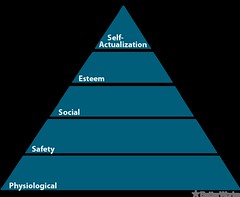| 7018054079 | Personality | characteristic patterns of thinking, feeling and acting |  | 0 |
| 7018054080 | Free Association | method of exploring the unconscious where patient relaxes and say whatever is on his mind, psychoanalytic |  | 1 |
| 7018054081 | Unconsciousness (Freud) | unacceptable motives and thoughts, unaware of processing, repressed desires |  | 2 |
| 7018054082 | ID | fueled by pleasure principle, aims to satisfy basic sexual and aggressive drive |  | 3 |
| 7018054083 | Ego | reality principle wants to satisfy ID in ways with realistic and long term pleasure |  | 4 |
| 7018054084 | Superego | conscious and morality, considers real and ideal, often opposes ID |  | 5 |
| 7018054085 | Oral Psychosexual Stage | 0-18 months, pleasure center is mouth....biting, chewing, sucking |  | 6 |
| 7018054086 | Anal Psychosexual Stage | 18-36 months, focused on bowel and bladder elimination, control |  | 7 |
| 7018054087 | Phallic Psychosexual Stage | 3-6 years, pleasure zone is genitals, coping with sexual feelings, oedipus complex |  | 8 |
| 7018054088 | Oedipus Complex | subconscious sexual desire to mom and jealousy of dad, more desire of relationship than sexual interaction |  | 9 |
| 7018054089 | Latency Psychosexual Stage | 6-puberty, dormant or suppressed sexual feelings ex: girls have cooties |  | 10 |
| 7018054090 | Genital Psychosexual Stage | puberty+, maturation of sexual interest |  | 11 |
| 7018054091 | Identification in Psychosexualiy | coping with oedipus complex by joining sides with "oppressor", this is where gender idetity takes place ex: if you cant beat them, join them |  | 12 |
| 7018054092 | Fixation in Psychosexuality | when psychosexual stage is over or understimulated (conflict is unresolved) and develop behaviors from being stuck in the stage |  | 13 |
| 7018054093 | Defense Mechanism | actions to reduce anxiety by distorting reality, ego's protection method, often sub concious |  | 14 |
| 7018054094 | Repression | defense mechanism that pushes thoughts into subconscious to banish all anxiety, underlies all defense mechanisms |  | 15 |
| 7018054095 | Regression | defense mechanism where you regress to infantile psychosexuality, comfort things from childhood ex: baby blanket, thumb sucking when scared |  | 16 |
| 7018054096 | Reaction Formation | defense mechanism where you are switching unacceptable impulses to acceptable ones ex: fake smiling when you're mad |  | 17 |
| 7018054097 | Projection | defense mechanism where you disguise your own threatening impulses by attributing it to others ex: thief thinks everyone else is a thief |  | 18 |
| 7018054098 | Rationalization | defense mechanism where you justify your problem ex: an alcoholic says hey just drink because it is social |  | 19 |
| 7018054099 | Displacement | defense mechanism where you are displaying unacceptable emotions on a more acceptable thing ex: want to hit someone but you decide to go hit a ball |  | 20 |
| 7018054100 | Denial | defense mechanism where you refuse to believe you have a problem |  | 21 |
| 7018054101 | Sublimination | channeling frustration toward another goal, usually healthy |  | 22 |
| 7018054102 | Carl Jung believed... | the unconscious held the collective unconscious |  | 23 |
| 7018054103 | Collective Unconscious | shared and inherited memory from previous times and species to help guide us in survival |  | 24 |
| 7018054104 | Projective Tests | personality tests and identification of random stimuli designed to trigger inner desires and thoughts |  | 25 |
| 7018054105 | Rorschach Inkblot Test | famous projective test where people describe what they see in ink images, modernly disredited |  | 26 |
| 7018054106 | False Consensus Effect | tendency to overestimate the extent of shared belief (projection) ex: I can go over the speed limit because everyone else does |  | 27 |
| 7018054107 | Terror Management Theory | death related anxiety, obsessed with their death |  | 28 |
| 7018054108 | Thematic Apperception Test | people express their inner feelings through stories from random scenes |  | 29 |
| 7018054109 | Abraham Maslow | hierarchy of needs, once needs are met you focus on another thing |  | 30 |
| 7018054110 | Self Actualization | process of fulfilling potential |  | 31 |
| 7018054111 | Self Transcendence | understanding meaning beyond ones self |  | 32 |
| 7018054112 | 3 conditions for growth | genuineness, empathy, acceptance or unbias, Carl Rogers |  | 33 |
| 7018054113 | Carl Rogers believed... | people are good unless growth was inhibited |  | 34 |
| 7018054114 | Self Concept | central feature of personality |  | 35 |
| 7018054115 | Myer Briggs Type Indicator | personality tests that defines you as a thinker, feeler...etc. |  | 36 |
| 7018054116 | Factor Analysis | grouping traits based on commonality |  | 37 |
| 7018054117 | Eysenck Personality Questionnaire | believed to be genetically influenced, categorized by 4 over arching traits |  | 38 |
| 7018054118 | Personality Inventories | in depth questionnaires designed to evaluate traits with agree/disagree questions |  | 39 |
| 7018054119 | Minnesota Multiphasic Personality Test | Starke Hathaway, originally developed to access and define emotional disorders but is used around the world now |  | 40 |
| 7018054120 | Empirically Derived Test | testing a pool of items and then selecting the different ones and placing them in groups |  | 41 |
| 7018054121 | Barnum Effect | accepting stock descriptions allowing you to truly believe them ex: horoscopes |  | 42 |
| 7018054122 | Big 5 Personality Factors | conscientiousness (organization) , agreeableness, neuroticism, openness, extraversion....50% heritibility among each trait. (CANOE) |  | 43 |
| 7018054123 | Neuroticism | emotional stability |  | 44 |
| 7018054124 | What is the best way to determine personality? | studying it over time because your personality becomes more stable, not tests because of barnum effect |  | 45 |
| 7018054125 | Reciprocal Determinism | the interaction of your mind, environment and behavior that influences personality |  | 46 |
| 7018054126 | Personal Control | how we perceive the control in our environment, studied by correlation and experimentation |  | 47 |
| 7018054127 | External Locus of Control | thinking that an outside forces beyond our control determine fate |  | 48 |
| 7018054128 | Internal Locus of Control | thinking that you can control your own fate |  | 49 |
| 7018054129 | Self Control | ability to control yourself and impulses in order to achieve greater reward in the future |  | 50 |
| 7018054130 | Learned Helplessness | bad event-percieved lack of control-helpless behavior ex: college, nursing homes, prison, depression |  | 51 |
| 7018054131 | Self Efficacy | belief in yourself that you can succeed, it is a learned behavior and is psychology most studied topic |  | 52 |
| 7018054132 | Strong Self Efficacy | views challenges as tasks, deeper interest, recover quickly from setbacks |  | 53 |
| 7018054133 | Weak Self Efficacy | challenges are beyond capabilities, low confidence, focuses on negatives |  | 54 |
| 7018054134 | Attributional Style | optimistic vs pessimistic |  | 55 |
| 7018054135 | Positive Psychology | optimal human functioning, promotes stregnths |  | 56 |
| 7018054136 | Self Reference Effect | we remember things better when connect an idea to a personal experience |  | 57 |
| 7018054137 | Self | the center of personality | 58 | |
| 7018054138 | Possible Selves | perception of what you could become "rich self" "poor self" |  | 59 |
| 7018054139 | Spotlight Effect | overestimating what others think of us ex: you have a zit and you are embarrased but no one really notices (Thomas Gilovich) |  | 60 |
| 7018054140 | Self Esteem | feeling of self worth |  | 61 |
| 7018054141 | Self Serving Bias | thinking of yourself higher than others or better than average |  | 62 |
| 7018054142 | Narcissism | excessive self love |  | 63 |
| 7018054143 | Defensive Self Esteem | focuses more about what others think about them, failure and criticism are threatening, aggresssive |  | 64 |
| 7018054144 | Secure Self Esteem | more accepting, less effected by external sources, greater quality of life | 65 | |
| 7018054145 | Psychoanalytic Personality Theory | Freud, emotional disorder are from the unconscious, unresolved conflict and defense mechanisms |  | 66 |
| 7018054146 | Psychoanalytic Assessments | free association, projective tests, dream analysis | 67 | |
| 7018054147 | Psyhodynamic Personality Theory | Adler, Jung, Horney...the conscious and unconscious interact, childhood experiences and focuses on defense mechanisms | 68 | |
| 7018054148 | Humanistic Personality Theory | Rogers and Maslow, focuses on healthy striving of self actualization, self concept, self awareness, therapy |  | 69 |
| 7018054149 | Trait Personality Theory | Allport, Eysenck, we have certain traits that are stable and influenced by genetics, big 5 and personality tests |  | 70 |
| 7018054150 | Social Cognitive Personality Theory | Bandura, our traits and sociability interact to produce behavior, behavior assessment | 71 |
AP Psychology: Personality Flashcards
Primary tabs
Need Help?
We hope your visit has been a productive one. If you're having any problems, or would like to give some feedback, we'd love to hear from you.
For general help, questions, and suggestions, try our dedicated support forums.
If you need to contact the Course-Notes.Org web experience team, please use our contact form.
Need Notes?
While we strive to provide the most comprehensive notes for as many high school textbooks as possible, there are certainly going to be some that we miss. Drop us a note and let us know which textbooks you need. Be sure to include which edition of the textbook you are using! If we see enough demand, we'll do whatever we can to get those notes up on the site for you!

